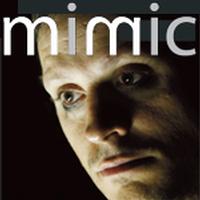
There are several occasions during Mimic when performer Raymond Scannell’s kohl-lined eyes look directly out into the audience and rake through the crowd with a malevolent glitter. The moments induce goose bumps, and a magnetic tug that would have you surrender all resistance and follow him willingly towards the heart of darkness he is hinting at in his self-penned monologue.
Seated at a gloss black piano, on a minimally dressed stage, Scannell dazzles with a torrent of language, effortlessly synchronized piano glissandi, and flashes of mimicry brilliance. Julian Neary, however, the character he is playing, the talented mimic of the title, is altogether a more anemic soul, and his audience attentiveness falters throughout a self-absorbed, self-dramatizing narrative. Julian’s eyes glaze over frequently as he recalls parts of his story, and he turns regularly away to face a mirror hanging alongside him. Given his prevailing narcissistic nature, and his present quest, after years as a successful entertainer, to separate a true self from his assumed characters, Julian’s self-absorption is perhaps appropriate. But an hour plus in the company of even the most diverting of narcissists can be taxing and, reflexively, an audience who fail to find anything that reminds them of themselves in that duration, are bound to get restive.
The narrative begins in a strange, dark, and chaotic place, and the early flourishes of mimicry, bursting forth in rapid-fire succession – Daniel Day Lewis as Christy Moore in My Left Foot, Peter’s Falk’s Columbo, Jimmy Stewart, Stephen Hawking, Gordon Ramsay, Louis Armstrong – deliver comedy as well as relief. The successful mimic, after all, is in the business of reassuring people that things are the way they think them to be. Which returns us to Julian’s, and in part also, the audience’s dilemma: Julian is a man who does not know where he is or who he is.
He begins life as the youngest and only adopted child of the Cork-dwelling Nearys – father, mother, and four children. Julian can’t tell us why he has no sympathy for his sickly older sister, Cait; he seems just to be emotionally disaffected from the start. Where he originally came from, and why his conservative, staunchly nationalistic, middle class parents adopted him, remains a mystery. Sensing himself as an outsider, he feels rejected and is in turn rejecting. Only a sympathetic protectiveness on his other sister, Aoife’s part, elicits a positive response, one that shortly blossoms into an unrequited emotional, sexual fixation. Deftly he sketches impressions of the various family members, winningly and comically when he is deploying scorn, less successfully when he attempts sympathy. Despite her pivotal role in the action, Aoife, alas, is never more than a bloodless, soft-spoken sylph. Julian’s characteristic signature gesture of her curling a strand of hair behind her ear is lazy, and registers merely as fetishistic rather than definitive.
The story and drama surrounding Julian’s early family life is the most engaging. From there the narrative spins off into the greater world as the children mature, and Ireland is overrun by the Celtic Tiger. Julian hones his craft, earns popularity and an audience, and takes lots of drugs. He follows Aoife to Manchester and joins a commune of disaffected young Irish calling themselves the Tuatha De Dannan, after the mythical race of Ireland’s forebears. The commune want to call a stop to a perceived erasure of Irish identity and culture, and highly credible as that might be, this is where things begin to take leave of recognizable reality and soar off into science fiction. A ponderous national symbolism takes hold as Julian’s endemic confusion, unbridled success, and drug taking render everything surreal and hectic. From Manchester we travel to the U.S. and there’s plastic surgery, liver transplants, drugs galore, and more hand wringing by commune members deploring the direction in which everything is going. Not only is Julian a symbol for a self-deluding new Irish society, but the action literally bends in the direction of warring forces, traditionalists clashing with assimilationists. Ireland is presented as a state where cosmetic surgery is enforced, Palinesque death panels target non-productive members of society, and hysterical laws are upheld by the Fashion Police. Perhaps it’s not just Julian and the nation who have lost the plot here.
Which is a great pity, as there is certainly a richness of performance, musicality, and language on display. And insight: “Mockery is the default mode of the Irish.” The direction and design, both by Tom Creed, are as compact, subtle, and precise as the narrative is rambling and overblown. Discernable nods in the direction of Beckett, Joyce, and Synge underline the enterprise’s ambitious high-seriousness and, alas, self-importance. The self-importance is something you could ascribe to Julian, despite all his wriggling attempts at self-parody. He is talented and clever, but void of feeling. Unfortunately his is the final word here, characteristically proving at once both under-nourished and overwrought.

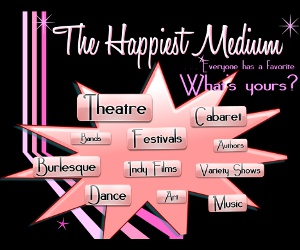
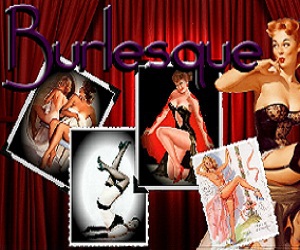


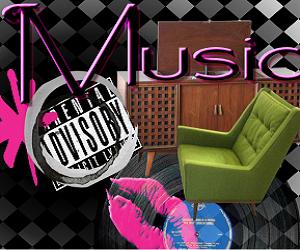
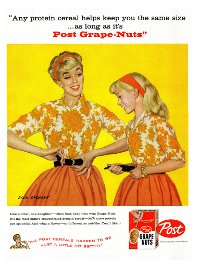
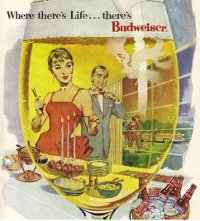
{ 1 comment… read it below or add one }
why this:
and he turns regularly away to face a mirror hanging alongside him
were you thinking of piano briefs ? lol